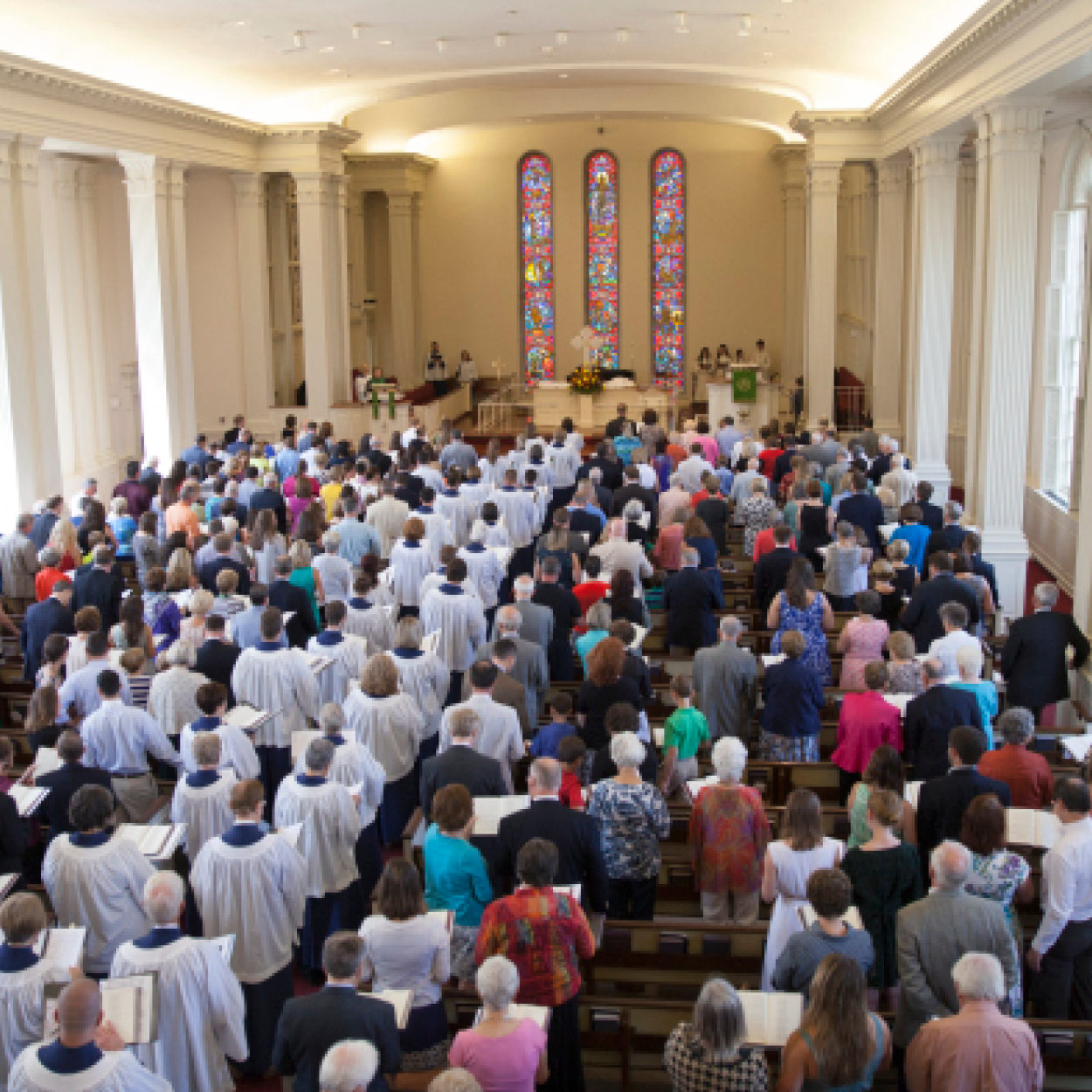Wesley and the early Methodists invited people to experience God's grace and to grow in their knowledge and love of God through disciplined Christian living. They placed their emphasis on being true disciples of Jesus Christ by putting faith and love into action. This emphasis on what Wesley referred to as "practical divinity" has continued to be a hallmark of United Methodism today. Wesley urged Christians to "do all the good you can" with the life you are given. In his preface to the Standard Sermons, he wrote, "I am a creature of a day, passing through life as an arrow through the air. I am a spirit come from God, and returning to God: Just hovering over the great gulf; till, a few moment hence, I am no more seen; I drop into a unchangeable eternity!"
Our theological heritage can be seen not only in the emphasis on Christian living, but also in Wesley's distinctive understanding of God's saving grace.
Grace is center to our understanding of Christian faith and life.
Grace can be defined as the love and mercy given to us by God because God wants us to have it, not because of anything we have done to earn it. We read in Paul's letter to the Ephesians: "For by grace you have been saved thought faith, and this is not your own doing; it is the gift of God- not the result of works, so that no one may boast." (Ephesians 2:8-9)
Our United Methodist heritage is rooted in a deep and profound understanding of God's grace. This incredible grace flows from God's great love for us. In John 3:16 Jesus says, "for God so loved the world that he gave his only Son, so that everyone who believes in him may not perish but may have eternal life." Jesus gave his life on the cross so that we might have life; not just any kind of life, but an abundant life. We gather as a church to emphasize in word and deed God's love and God's grace through Jesus Christ. This grace at work in our lives leads us to be transformed: made new creations in Christ.
John Wesley, the founder of the Methodist movement, described God's grace as threefold:
- Prevenient grace- Grace that precedes human decision. Prevenient grace elicits the first wish to please God, the first dawn of light concerning his will, and the first slight transient conviction of having sinned against him.
- Justifying grace- Grace given and received, marking the new life in Christ.
- Sanctifying grace- Grace that sustains us and moves us on toward perfection.
How do United Methodist Christians practice their faith? United Methodists believe that faith and good works belong together. The Christian life should be confirmed by what we do. Personal salvation must be expressed in ministry and mission in the world. We believe that Christian doctrine and Christian ethics are inseparable and that faith should inspire service. The integration of personal piety and social holiness has been a hallmark of our tradition. We affirm the Biblical precept that "faith by itself, if it has no works, is dead." (James 2:17)
Our Faith Journey
Faith is the basic orientation and commitment of our whole being—a matter of heart and soul. Christian faith is grounding our lives in the living God as revealed especially in Jesus Christ. It’s both a gift we receive within the Christian community and a choice we make. It’s trusting in God and relying on God as the source and destiny of our lives. Faith is believing in God, giving God our devoted loyalty and allegiance. Faith is following Jesus, answering the call to be his disciples in the world. Faith is hoping for God’s future, leaning into the coming kingdom that God has promised. Faith-as-belief is active; it involves trusting, believing, following, and hoping.
Our Theological Journey
Theology is thinking together about our faith and discipleship. It’s reflecting with others in the Christian community about the good news of God’s love in Christ.
Both laypeople and clergy are needed in “our theological task.” The laypeople bring understandings from their ongoing effort to live as Christians in the complexities of a secular world; clergy bring special tools and experience acquired through intensive Biblical and theological study. We need one another.
But how shall we go about our theological task so that our beliefs are true to the gospel and helpful in our lives? In John Wesley’s balanced and rigorous ways for thinking through Christian doctrine, we find four major sources or criteria, each interrelated. These we often call our “theological guidelines”: Scripture, tradition, experience, and reason. Let’s look at each of these.
Scripture
In thinking about our faith, we put primary reliance on the Bible. It’s the unique testimony to God’s self-disclosure in the life of Israel; in the ministry, death, and resurrection of Jesus the Christ; and in the Spirit’s work in the early church. It’s our sacred canon and, thus, the decisive source of our Christian witness and the authoritative measure of the truth in our beliefs.
In our theological journey we study the Bible within the believing community. Even when we study it alone, we’re guided and corrected through dialogue with other Christians. We interpret individual texts in light of their place in the Bible as a whole. We use concordances, commentaries, and other aids prepared by the scholars. With the guidance of the Holy Spirit, we try to discern both the original intention of the text and its meaning for our own faith and life.
Tradition
Between the New Testament age and our own era stand countless witnesses on whom we rely in our theological journey. Through their words in creed, hymn, discourse, and prayer, through their music and art, through their courageous deeds, we discover Christian insight by which our study of the Bible is illuminated. This living tradition comes from many ages and many cultures. Even today Christians living in far different circumstances from our own—in Africa, in Latin America, in Asia—are helping us discover fresh understanding of the Gospel’s power.
Experience
A third source and criterion of our theology is our experience. By experience we mean especially the “new life in Christ,” which is ours as a gift of God’s grace; such rebirth and personal assurance gives us new eyes to see the living truth in Scripture. But we mean also the broader experience of all the life we live, its joys, its hurts, its yearnings. So we interpret the Bible in light of our cumulative experiences. We interpret our life’s experience in light of the Biblical message. We do so not only for our experience individually but also for the experience of the whole human family.
Reason
Finally, our own careful use of reason, though not exactly a direct source of Christian belief, is a necessary tool. We use our reason in reading and interpreting the Scripture. We use it in relating the Scripture and tradition to our experience and in organizing our theological witness in a way that’s internally coherent. We use our reason in relating our beliefs to the full range of human knowledge and in expressing our faith to others in clear and appealing ways.


